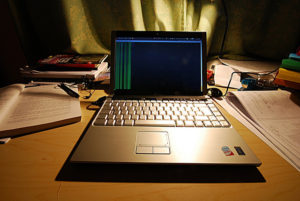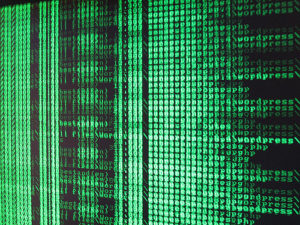Gabriela Ore: To Code or Not To Code
As archaeologists, do we need to code? No. Will it help our research, or will it make a substantial difference? Mmm …, no.
Do we need to collaborate? Will it help our research, will it make a substantial difference? Yes.
To code or not to code
This is the question that I posed as part of one of the sessions for this year’s Vanderbilt THATCamp. Have you thought about this issue too? We are historians, archaeologists, literature, or cinema and media researchers, we are not computer scientists or hard-core coders. But secretly, we would all love to be one, right? We are not in the Digital Humanities just as a professional coincidence—we love everything digital, and we want to be able to take our disciplines to a new normal, where data can be collected, analyzed, storage, shared and presented in new digital mediums and innovative ways. But sometimes, at least in my case, that exploration hits a dead end when I am faced with a piece of code or a link to GitHub. Then, the exploration ends.
During the THATCamp discussion about my original question –to code or not to code– the consensus was “yes, why not??, and: “yes, you don’t need to be a master coder, but the basics should be more than enough”. With that, the debate was over.
I agree with this consensus. But, what does a bit of coding look like for somebody with a lot of enthusiasm, very little time, and no previous knowledge? This is the issue.
So, here is my experience, and what I am doing. You may agree or disagree with me, but, at least, you will have the model of an actual person’s approach to the problem.
I am a Peruvian archaeologist with a soft spot for computers. I am from a generation where having a PC at home was not yet the norm during my schooling years, and internet connections had to be dial-up. I did learn some basics of DOS and even some Python Turtle coding before becoming mouse dependent. But that was more than 25 years ago. What has this to do with my frustrating relationship with coding? Probably nothing, but I like to believe that it set the tone to my predisposition to like the dark screen background, the commands and the use of terminal.
As archaeologists, we use a lot of digital tools to help us collect, register and process data. You can go from very basic Office tools to very complicated statistical tools or advanced VR projects. The sky is the limit (actually, your budget is). Do we need to code? No. Will it help our research, or will it make a substantial difference? Mmm …, no. So, if coding is not required or even suggested, what is the issue here? The answer to this question is: collaboration.
In my field, and I guess in many more within Digital Humanities, collaboration is the key to move projects, to create tools, to adapt tools for your particular needs. And for that coding, is still … not necessary. But, on the other hand, being able to understand what is happening behind coding doors will improve collaborative projects. You don’t need to learn the nitty gritty of large lines of code, but to be  able to understand the logic behind it will make collaboration more horizontal. You will be able to understand what you are asking from your programming partner and whether that is doable, useful, and practical.
able to understand the logic behind it will make collaboration more horizontal. You will be able to understand what you are asking from your programming partner and whether that is doable, useful, and practical.
I am an archaeologist, I need digital tools to make my research better and faster. I possess the knowledge to envision what I need, but not necessarily to create an algorithm to make it happen. And that is when collaboration becomes necessary. Do we need to collaborate? Yes. Will it help our research, or will it make a substantial difference? Yes.
I have come to the conclusion that I want to learn to code at least to a medium user level. I want to be able to use GIS and create my own analytic tools in python. I think that is achievable, and that is what I am doing. Sometimes is hard, sometimes it feels that I am taking time from other tasks related to my own research, but I am still trying. My main resource in this coding endeavor is the Python working group at the Vanderbilt DH, where other humanists are on a similar path, learning to code and being accountable to one another on our progress. A small coding community of scholars who that are like me in their digital interests and experience level… and who also like the dark screen background, the commands and the use of terminal.